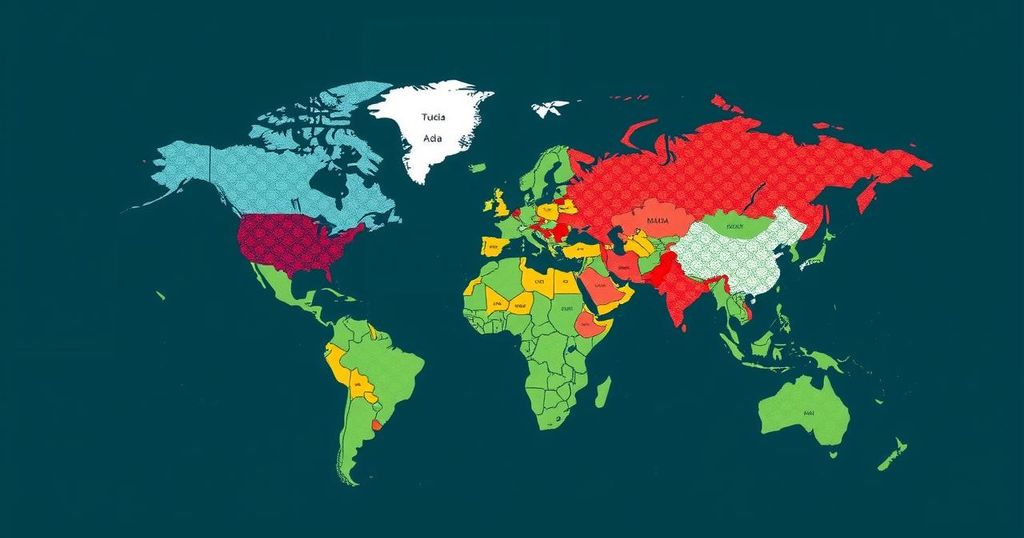Global Elections Signal Retreat from Climate Action Amid Rising Challenges

The 2024 election year has seen diminishing political commitment to climate action, exemplified by wins for climate-skeptical leaders across the globe. Amidst significant climate disasters, issues like inflation have overpowered climate discussions. The recent Cop29 summit reflected dissatisfaction with the lack of substantial progress, raising concerns that the urgency for action is lost in current political agendas, as the window for effective climate measures rapidly narrows.
The year 2024 is shaping up to be a pivotal election year globally, yet amidst a backdrop of increasing climate disasters, nations are showing a diminishing commitment to address the climate crisis effectively. Major political victories including that of Donald Trump in the United States, a skeptic of climate change, and right-wing parties across Europe, highlight a worrying trend. Experts suggest the focus on the climate is waning, with economic concerns such as inflation taking precedence.
Despite record temperatures and extreme weather events, climate issues are predominantly sidelined in political discourse. In India, however, farmer protests related to devastating weather have brought climate issues into the political spotlight, contributing to Narendra Modi’s reelection. This contrasts sharply with results in Europe, where climate-denying parties performed well in elections.
This year has not been entirely devoid of positive movements, as centrist parties in the UK and France maintained support amid a global environment that is largely skeptical of aggressive climate policies. Nevertheless, the overarching narrative is one of stagnation in climate action, exacerbated by a lack of leadership at critical UN gatherings, such as the recent Cop29 summit. Activists have voiced concerns about the tangible failure to commit to climate financing and emission reduction, especially against the backdrop of historical polluters.
As the Cop29 summit concluded with few breakthroughs and a conspicuous absence of progress on emissions targets, frustration among global leaders mounted. Some expressed exasperation at the contradictions in promised climate leadership versus on-the-ground action. With dire warnings from scientists about climate thresholds being breached, there is a growing urgency for governments to act decisively. As the political landscape shifts towards right-wing agendas, the window for effective climate action narrows.
The current global political landscape, characterized by historical elections across many nations, reflects a translation of public sentiment away from prioritizing the climate crisis. This trend comes at a time when the impacts of climate change are intensifying, manifesting in unprecedented heatwaves and severe weather events. With the rise of populist leaders who often favor short-term economic gains over long-term environmental strategies, a troubling pattern emerges where climate commitments are sacrificed for political expediency. Previous enthusiasms for green policies appear to have been dampened by crises such as economic instability and geopolitical conflicts, leading to a general retreat from proactive climate leadership in major powers.
The 2024 election year emerges as a significant juncture for global climate action, with waning public and political commitment amid escalating environmental crises. The dominance of right-wing, climate-skeptical political movements in various regions highlights a distressing trend, as concerns about inflation and energy costs overshadow urgent climate needs. While there are pockets of resistance and signs of hope in certain elections, the overall sentiment suggests a troubling regression that threatens the global consensus needed to combat climate change effectively. As critical deadlines for climate action approach, the world faces an increasingly urgent challenge to prioritize both political and environmental responsibility.
Original Source: www.theguardian.com







